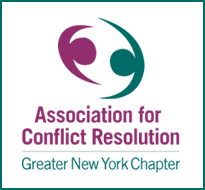|

VIEW BIOS OF THURSDAY SPEAKERS TODAY'S SESSIONS ARE SPONSORED BY: 8:00 - 10:00am (2 hours) We all know that there are many variations of mediation that nonetheless represent legitimate examples of the process. But there are now instances in which the incentives adopted by legislatures and courts to encourage the use of mediation seem to be inviting opportunistic distortion and even misuse. Examples include “drive-by mediation” in Texas, “binding mediation” in California (and a few other states), and lawyers’ use of the mediation privilege as a shield from clients’ legal malpractice claims (again in California). Will some of these distortions make their way into other states and even into international commercial mediation as parties seek expedited enforcement under the Singapore Convention? At what point should we care about these distortions of the process?
8:00 - 8:30am - Networking 10:10 - 11:10am (1 hour) According to the Department of Homeland Security’s Center for Prevention Programs and Partnerships, the behavioral threat assessment and management (BTAM) model is an “evidence-based and systematic process to identify, inquire, assess, and manage potential threats.” This approach to targeted violence and critical incident prevention relies on multidisciplinary teams of professionals that can include individuals from law enforcement, mental health and social services; education, and others who are dedicated to community service and public safety to address and respond to concerns that an individual may be on a pathway towards mass or targeted violence. In Philadelphia, hate and extremism prevention and response is coordinated through an interdisciplinary partnership of federal, local, and state government and law enforcement and community-based organizations called the Philadelphia Civil Rights Rapid Response Team (PCRRRT). While this action network typically focuses on community-level intervention, it can and has used the BTAM approach to address individual-based concerns.
A global and comparative understanding of how different countries deal with workplace harassment, bullying, and discrimination, with a special focus on gender-based violence at work. The panel will explore the implications of ILO Convention 190, its impact on countries that have or have not ratified this Convention, and how it shapes workplace policies and practices. Workplace harassment is a persuasive issue with serious consequences for employers and employees. Are there sufficient protections and compliance controls to deal with this increasing and pervasive trend? Is employer liability sufficiently regulated? Are complainants sufficiently protected from further abuse? Are investigation techniques in line with global trends? As the global trend towards stricter and anti- harassment legislation gains momentum worldwide, we need to focus on proactive steps to create a safe and respectful workplace for all. 12:30 - 1:30pm (1 hour) Traditional conflict resolution spaces often prioritize neutrality and structured dialogue, but they don’t always account for the invisible impacts of trauma, stress, and systemic inequities on participation and engagement. Many conflicts are deeply intertwined with historical, organizational, and interpersonal trauma, making it essential for facilitators, mediators, and coaches to cultivate healing spaces that meet people where they are and minimize the risk of activating new, unrelated stress responses. We must adjust our techniques to support trust, de-escalation, engagement, and ideally, active healing. This interactive session will explore the science of trauma and stress and their intersection with learning, conflict resolution, and group dynamics. Through real-world case studies, hands-on exercises, and discussion, attendees will learn practical strategies for leading and facilitating with a trauma-informed and healing-centered approach, creating psychologically safe and non-extractive conflict resolution spaces, and ensuring that all stakeholders feel practically and emotionally safe enough to engage, take risks, and grow. 1:40 - 2:40pm (1 hour) Conflict is an enduring feature of group life, and effective conflict management practices are essential in the workplace. This session will describe the use of restorative practices as a resource for navigating organizational conflict. It will highlight the work of NYC's Center for Creative Conflict Resolution, which serves the city's agencies, employees, unions, and the public. The session will show how the Parks Department uses restorative practices to inform its internal workforce development and support employees' public-facing work. Participants will also hear early findings from an ongoing study of restorative practices that points to its effectiveness as an approach to organizational conflict. 2:50 - 3:20pm (30 minutes) The Korean Baseball Organization’s successful implementation of the Automated Ball-Strike System (ABS) has sparked discussions about the role of technology in dispute resolution. This session will explore how the lessons from ABS—such as enhanced accuracy, reduced human error, and increased transparency—can help lead the evolution of Alternative Dispute Resolution (ADR). As ADR continues to expand in legal and corporate settings, the integration of technology in arbitration and mediation is becoming more prevalent. Can automated decision-making tools improve efficiency and fairness in dispute resolution? What are the challenges of balancing human discretion with technological precision? Drawing parallels between sports officiating and ADR, this panel will discuss the broader implications of ABS on arbitration and mediation processes, evidentiary assessments, and procedural fairness. Join me for an engaging conversation as I analyze how KBO’s adoption of ABS serves as a case study for the future of ADR. Whether you are a legal professional, mediator, or technology enthusiast, this session will provide key insights into how automation and AI-driven tools may reshape the dispute resolution landscape in the years to come. 0.5 CLE Credit 3:30 - 4:30pm (1 hour) Effective coaching leaders use systems, structured and repeatable processes and implement coaching methods into their leadership. Feedback, behaviors, engagement and measurement of progress and outcomes are key disciplines of effective coaching leaders. They use these same coaching methods to resolve team and organizational conflict. We will walk through this approach to gain insight into how a proven foundational leadership framework resolves workplace conflict based on the 7 disciplines of high-performing coaching leaders. The aim of this presentation is to expand the knowledge of pathways to conflict resolution and offer practical methods that can be applied immediately. 6:00pm LOCATION: Cardozo School of Law - Third Floor Lounge ADDRESS: 55 Fifth Avenue, New York, NY 10003 (Floor 3) This panel will examine the growing divergence between established global governance frameworks and contemporary conflict realities. Experts from international relations, security studies, and conflict resolution will explore how modern warfare, cross-border tensions, and emerging security threats challenge the reach of traditional institutional responses and consider new conceptualizations of the global conflict landscape. Join us after the panel for a reception; light fare will be served. Separate Registration Required SPECIAL EVENT SPONSORED BY |



.png)







